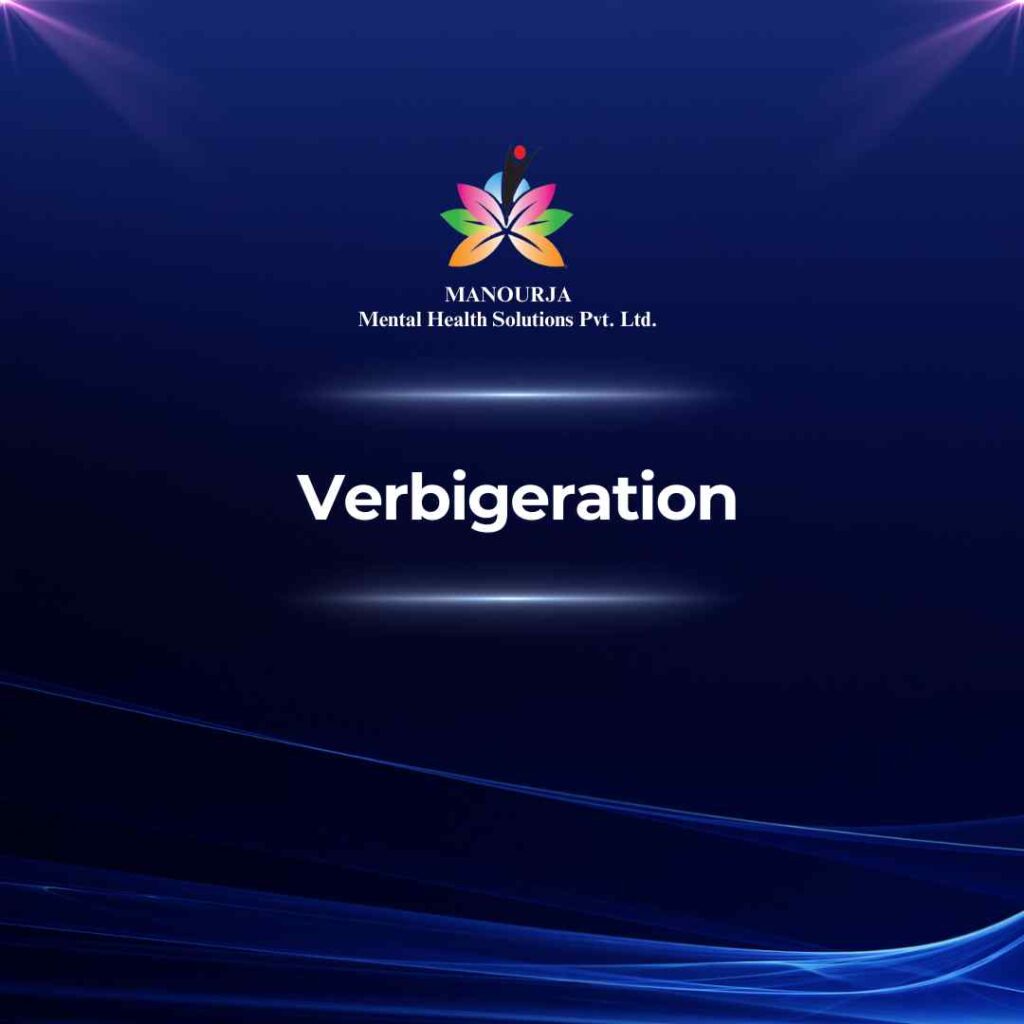Verbigeration

“Verbigeration” is a term used in psychiatry to describe the compulsive repetition of specific words or phrases. It is often associated with neurological or psychiatric disorders where verbal communication is affected. Here’s a description of verbigeration as a sign and symptom of mental illness, along with a list of conditions where it can be observed:
Verbigeration refers to the pathological repetition of words, phrases, or sentences without necessarily conveying meaning or responding to the immediate context. It can manifest as involuntary and persistent speech that appears disconnected from the current conversation or situation.
Signs and Symptoms of Verbigeration
- Repetitive Speech: Individuals may repeat the same words or phrases over and over, often without being prompted or relevant to the ongoing conversation.
- Lack of Adaptation: The repetition may not adjust to changes in conversation topics or cues from others.
- Automatic and Involuntary: Verbigeration can occur automatically, seemingly beyond the individual’s control, and may continue even when it interferes with communication.
Mental Illnesses Where Verbigeration Can Occur
- Schizophrenia: It is commonly observed in individuals with schizophrenia, particularly during acute psychotic episodes. Verbigeration may reflect disorganized thinking and speech patterns characteristic of this disorder.
- Mania: In manic episodes associated with bipolar disorder, individuals may experience pressured speech and verbal impulsivity, which can include aspects of verbigeration.
- Autism Spectrum Disorders (ASD): Some individuals with ASD may exhibit echolalia, a form of verbigeration where they repeat words or phrases they have heard, often without apparent communicative intent.
- Neurological Disorders: Conditions such as Tourette syndrome or other tic disorders can also involve repetitive vocalizations or verbal tics that resemble verbigeration.
Treatment and Management
Management of verbigeration often involves addressing the underlying mental health or neurological condition. Treatment approaches may include:
- Medication: Antipsychotic medications for schizophrenia, mood stabilizers for bipolar disorder, or medications to manage tics in neurological conditions.
- Therapy: Cognitive behavioral therapy (CBT) or speech therapy to help improve communication skills and reduce repetitive behaviors.
- Supportive Care: Providing a supportive environment and strategies to manage stress and triggers that may exacerbate symptoms.
Understanding and addressing verbigeration within the context of the individual’s overall mental health and neurological functioning is crucial for effective treatment and support.
At MANOURJA, we believe in the transformative power of counseling. Our experienced therapists offer a safe and supportive space where you can explore your thoughts, emotions, and challenges. Through personalized counselling sessions, we’ll work together to develop coping strategies, build resilience, and achieve lasting positive change. Discover the path to a healthier, happier you with MANOURJA counselling services.
MANOURJA Rehabilitation Services
At MANOURJA, we’re dedicated to helping you in rebuild your life, after difficult times. Our rehabilitation services focus on understanding what you need to move forward, whether you’re recovering from addiction, trauma, or any psychological – social challenges. We create personalized plans, that are all about helping you, regain your strength and find hope again. With a caring team by your side, you’ll have the support to make real progress and take steps toward a brighter, healthier future.
